Opening remarks by Mr. Péter Kovács, Ministry of Interior of
Anuncio
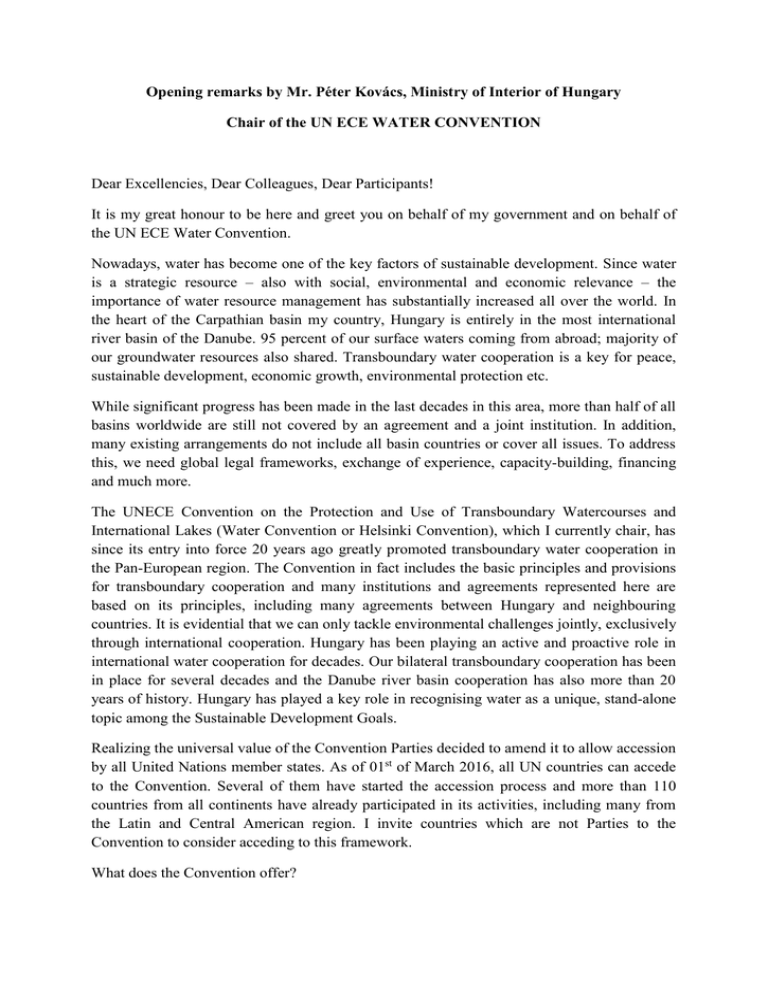
Opening remarks by Mr. Péter Kovács, Ministry of Interior of Hungary Chair of the UN ECE WATER CONVENTION Dear Excellencies, Dear Colleagues, Dear Participants! It is my great honour to be here and greet you on behalf of my government and on behalf of the UN ECE Water Convention. Nowadays, water has become one of the key factors of sustainable development. Since water is a strategic resource – also with social, environmental and economic relevance – the importance of water resource management has substantially increased all over the world. In the heart of the Carpathian basin my country, Hungary is entirely in the most international river basin of the Danube. 95 percent of our surface waters coming from abroad; majority of our groundwater resources also shared. Transboundary water cooperation is a key for peace, sustainable development, economic growth, environmental protection etc. While significant progress has been made in the last decades in this area, more than half of all basins worldwide are still not covered by an agreement and a joint institution. In addition, many existing arrangements do not include all basin countries or cover all issues. To address this, we need global legal frameworks, exchange of experience, capacity-building, financing and much more. The UNECE Convention on the Protection and Use of Transboundary Watercourses and International Lakes (Water Convention or Helsinki Convention), which I currently chair, has since its entry into force 20 years ago greatly promoted transboundary water cooperation in the Pan-European region. The Convention in fact includes the basic principles and provisions for transboundary cooperation and many institutions and agreements represented here are based on its principles, including many agreements between Hungary and neighbouring countries. It is evidential that we can only tackle environmental challenges jointly, exclusively through international cooperation. Hungary has been playing an active and proactive role in international water cooperation for decades. Our bilateral transboundary cooperation has been in place for several decades and the Danube river basin cooperation has also more than 20 years of history. Hungary has played a key role in recognising water as a unique, stand-alone topic among the Sustainable Development Goals. Realizing the universal value of the Convention Parties decided to amend it to allow accession by all United Nations member states. As of 01st of March 2016, all UN countries can accede to the Convention. Several of them have started the accession process and more than 110 countries from all continents have already participated in its activities, including many from the Latin and Central American region. I invite countries which are not Parties to the Convention to consider acceding to this framework. What does the Convention offer? o The development of basin agreements and setting up of institutions for transboundary cooperation are a key obligation under the Water Convention. It supports countries in setting up agreements and river basin organizations. o The Convention supports countries and basin organizations through assessments and exchange of experience, capacity-building, development of guidance material and projects on the ground. o The Convention works on different topics relevant for transboundary water cooperation, such as in 2016-2018, on assessing benefits of transboundary water cooperation, evaluating the water-energy-food ecosystems nexus or adapting to climate change in transboundary basins. I invite you to use the intensive guidance material developed under the Convention and to benefit from the mentioned activities. o The opening of the Convention is also very useful in light of the SDGs and the target 6.5. As you know, it is a great step forward that transboundary water cooperation is now included in the SDG target 6.5 which requires governments to implement IWRM at all level, including through transboundary cooperation, as appropriate. The Convention supports countries in implementing this target and reviewing progress, including through contribution to development of the indicator for it. As demonstrated, the Water Convention and INBO are fully complementary and can strengthen each other. Cooperation between INBO and the Water Convention has therefore been expanded over the last years. I would like to thank INBO for this excellent cooperation. The global opening of the Water Convention provides an opportunity to expand cooperation further in the future. Examples of this cooperation are the joint global network of transboundary basins working on climate change adaptation, the collection of lessons learned and good practices on this topic published in 2015 and the Paris Pact for basin adaptation. The impressive number of over 350 signatories of the Pact demonstrates the recognition of the need for adapting water management to climate change at the basin level. The Water Convention stands ready to support the review and follow-up of the Paris Pact commitments. I would also like to thank CONAGUA for hosting this INBO General Assembly. We look forward to organizing the planned workshop on the general principles for transboundary water cooperation and the Water Conventions for Latin and Central America, which will be held in October in Mexico. I invite you to the Budapest Water Summit on 28-30 November in Budapest and to the Working Group on IWRM to be held on 18-19 October in Geneva. At these events, among others the global opening and the 20 years of entry into force of the Water Convention will be celebrated. Jointly, we can create a global coalition to address transboundary water resources management problems. Only by uniting forces between countries, international organizations, financing institutions, non-governmental organizations (NGOs), academia and the private sector will we be able to broaden the exchange of experience and mobilize the needed political support and funding for transboundary water cooperation. Finally, I wish you a fruitful meeting.
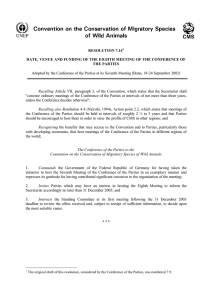
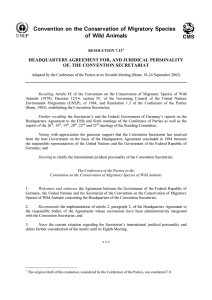
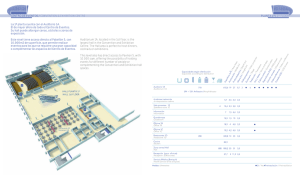
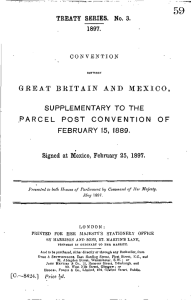
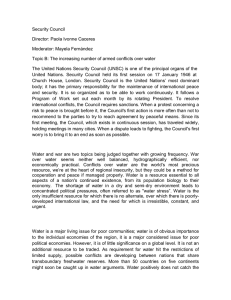
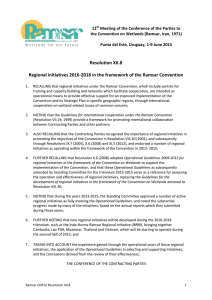
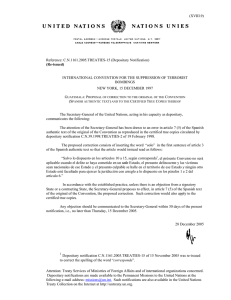
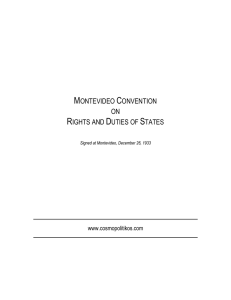
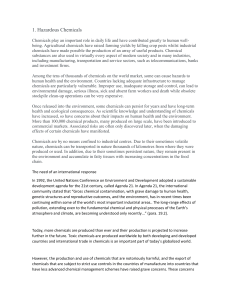
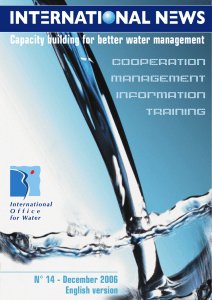
![Assessment of salvage award under Lloyds Open Form [LOF]](http://s2.studylib.es/store/data/008910192_1-41fee18165e69b11fd0f489fa0fee05f-300x300.png)